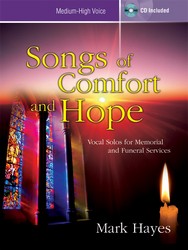- |
User Links
Abide With Me
Hymn Information
- First Line
- Abide with me: fast falls the eventide
- Author
- Henry F. Lyte (1847, alt.)
- Tune Name
- EVENTIDE
- Composer
- William H. Monk (1861)
- Topic
- Change · The Cross · Daily Prayer: Evening · Darkness · Powers of Darkness · Death and Dying · Eternal Life · God's: Presence · Jesus Christ: Confidence in · New Heaven and Earth · Occasional Services: Funeral/Witness to the Resurrection · Spiritual Peace
Copyright Information
- Text Copyright
- Public Domain
- Tune Copyright
- Public Domain
- Reprint/Projection Information
- Words and Music: The Words and Music are in the Public Domain; you do not need permission to project or reprint the Words and Music.
Full Text
Scripture References
- ·
Thematically related:
- st. 1 = ·
- st. 2 = ·
- st. 3 =
- st. 4 = ·
- st. 5 =
Further Reflections on Scripture References
The text was inspired by Luke 24:29, in which the two travelers to Emmaus ask Jesus to "stay with us, for it is nearly evening." But "Abide with Me" is not a hymn for the evening of a day; instead evening is a metaphor for the close of life, a transition from life's "little day" (st. 2) to "Heaven's morning" (st. 5), which Lyte himself was quickly I approaching. The text is a prayer for God's abiding care when friends fail (st. 1), when everything seems to change and decay (st. 2), when the devil attacks (st. 3), when death approaches (st. 4), and when we pass from this life to heaven's glory (st. 5).
Psalter Hymnal Handbook
Though inspired by Luke 24:29, Lyte’s hymn develops “evening” as an extended metaphor for the close of life. Stanza 4 originally contained the line “Ills have no weight and tears no bitterness,” which the editors of the Psalter Hymnal (1987) changed to reflect the realism of Psalm 23:4.
Bert Polman
Confessions and Statements of Faith References
Further Reflections on Confessions and Statements of Faith References
No hope is stronger than that expressed in Heidelberg Catechism, Lord’s Day 1, Question and Answer 1: we “…belong—body and soul, in life and in death—to my faithful Savior, Jesus Christ…because I belong to him, Christ by His Holy Spirit assures me of eternal life...”
The basic perspective of hope is expressed in Belgic Confession, Article 37 “…the Lord will make them (us) possess a glory such as the human heart could never imagine. So we look forward to that day (of Christ’s return) with longing in order to enjoy fully the promises of God in Christ Jesus, our Lord.”
Heidelberg Catechism, Lord’s Day 15, Question and Answer 42 clarifies what may be misunderstood when it says that even though Christ died for us, we still have to die, but “our death does not pay the debt of our sins. Rather it puts an end to our sinning and is our entrance into eternal life.” Additionally, Heidelberg Catechism, Lord’s Day 17, Question and Answer 45 explains that Christ’s resurrection “is a sure pledge to us of our blessed resurrection.”
Heidelberg Catechism, Lord’s Day 22, Questions and Answers 57 and 58 speak reassurances about the actual event of dying: “Not only will my soul be taken immediately after this life to Christ its head, but also my very flesh will be raised by the power of Christ, reunited with my soul, and made like Christ’s glorious body,” and “even as I already now experience in my heart the beginning of eternal joy, after this life I will have perfect blessedness such as no eye has seen, no ear has heard, no human heart has ever imagined: a blessedness in which to praise God forever” (Heidelberg Catechism, Lord’s Day 22, Question and Answer 58).
Our World Belongs to God, paragraph 56 summarizes our hope by testifying, “We long for that day when our bodies are raised, the Lord wipes away our tears, and we dwell forever in the presence of God. We will take our place in the new creation, where there will be no more death or mourning or crying or pain, and the Lord will be our light. Come, Lord Jesus, come.”


 My Starred Hymns
My Starred Hymns






